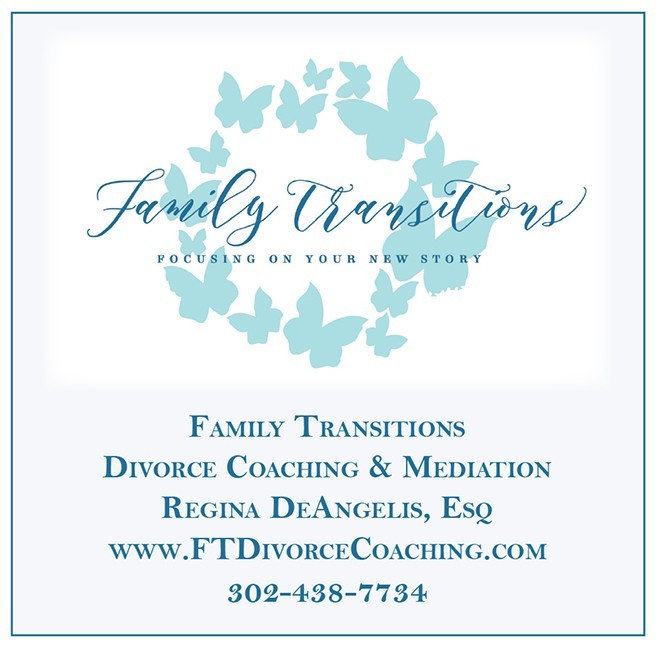It’s Time For A Cultural Shift

By Regina DeAngelis, Esq.
Founder, Family Transitions Divorce Coaching & Mediation
When I was in law school, I wanted to help the world by being a family law attorney. I thought I could help families get through divorce as smoothly as possible. However, the reality of the traditional divorce system made the practice of family law frustrating, and often times heartbreaking. Eventually I left the traditional practice of family law, and developed a practice guiding people through their divorces with emotional intelligence. I teach them to focus on the positive as much as possible (even when their spouse still believes in the antagonistic divorce system), and help them to get through the divorce with confidence and emotional health.
A system that makes spouses adversaries makes no sense. Divorce is not a war, it is a personal loss. Divorce is horribly sad, and requires grieving. As with any loss, feelings of grief can be dealt with appropriately, or they can mire you in bitterness. Many people need more support than their innate resilience provides. As a divorce coach, I help my clients purposefully develop the skills they need to be internally happy regardless of their external circumstances. They strengthen their resilience and bounce back stronger than ever. An important part of this process is helping my clients to release the blame and shame typically associated with divorce.
Why is there so much blame and shame embroiled in our ideas about divorce? It’s because society’s ideas about divorce come from the antiquated “fault” based divorce system. You couldn’t get divorced unless you could PROVE in COURT that someone was to blame for your marriage ending. In 2018, this is ridiculous, and society should recognize that marriages end, in most cases, because human beings continue to evolve and change.
Shifting cultural norms, however, happens slowly. Yet we know it happens. We’ve seen the women’s rights movement and the civil rights movement take hold in the American psyche. These were monumental shifts in what had been misplaced cultural norms for generations. But with divorce, even though you may file the paperwork “no-fault,” too often the parties, AND society, look to assign misplaced blame. The reality is, that in most cases, a divorce is nobody’s fault.
So, what is the reality? Most often, both parties had the intention of doing their best every day. Unfortunately, life in the digital age, with its longer and longer work days, and children who are more and more involved and “accomplished,” make maintaining an emotional connection to their spouse impossible. This is where the sadness comes in. No one intends for this to happen. A very small percentage of people really are purposely mistreating their spouse.
Recognizing the good intentions of your spouse, and approaching divorce WITHOUT ASSIGNING BLAME, is the key to a healthier divorce process.
Instead of BLAMING the other spouse, be grateful for the lessons learned, and support each other’s happiness AFTER the divorce.
I know that shifting to an emotionally intelligent divorce process will take deliberate steps on the part of the people making this enlightened choice. But all cultural movements have to start with one deliberate step.
I would like to see a world where warring “exes” are embarrassed by their behavior. The party with a “win or lose” attitude should feel social pressure to treat their ex-spouse with compassion, empathy, and respect, rather than as an opponent to be defeated. When spouses don’t feel as though they are under attack by the other, they can stop being on the defense, and start building a new foundation for their altered future relationship.
We need to shift the culture surrounding divorce. “Friendly exes” should be role models. We should remember that families in this country come in all creeds, colors, and . . . configurations.
If you’re facing a divorce in 2019, help be part of the change.
Regina DeAngelis was born and raised in Wilmington, Delaware. She is a graduate of Archmere Academy, George Washington University, and Widener University School of Law. After practicing family law for seventeen years, she could no longer ignore the toxic effects the divorce process had on all the parties involved, and transformed her practice from traditional family law to divorce coaching and mediation. In this capacity, she coaches clients through the divorce process, helping them to take control of their circumstances while lessening the adversarial nature of traditional divorce. With her practice “Family Transitions Divorce Coaching & Mediation,” she focuses on bringing positivity and hope to those going through the difficult transition of divorce.
Find Family Transitions on the web at FTDivorceCoaching.com, on Facebook at Family Transitions, or give Regina a call at 302-438-7734.


